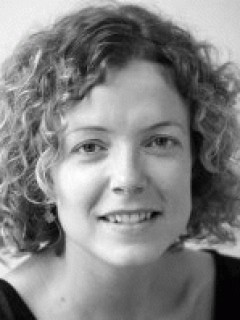Most people may have heard of the Arts Council but our research tells us that not everyone knows exactly what it is we do for the arts in England. They are often surprised to learn that we distribute over £400m a year from government to around 1,000 arts organisations across the country, from Darlington Arts Centre in the North East to the National Theatre in London. The Arts Council also distributes National Lottery money to artists, arts organisations and community groups through an open access grants programme.
The Arts Council was established in 1946 by Royal Charter as an independent body responsible for promoting knowledge, understanding, practice and accessibility of the arts. Some 60 years ago this meant supporting a small number of theatres, orchestras and ballet companies in London and other metropolitan centres and rather hoping the masses would come.
Diverse artistic practices
Today it means fostering a diverse range of artistic practice from carnivals to sculpture to community opera in villages, towns and cities throughout England, and encouraging as many people as possible to get involved in arts activities that are meaningful and valuable to them.
The Arts Council’s mission is to enable everyone to experience arts that enrich and challenge. Our research programme is designed to help the organisation understand how we can best achieve that mission and to evaluate how successful we’ve been to date.
As such, much of our research is focused on finding out how people think and feel about the arts, why and how they engage with the arts, what prevents them from getting more involved and what the impact of their experiences is. The research team is positioned at the heart of the organisation and has become central to the process of strategy development.
Key challenge
One of the Arts Council’s key challenges is that it has a responsibility to everyone in the country, not just arts enthusiasts but also those with little or no experience of the arts. In addition, we also support the development of artists and arts organisations plus we work in partnership with a range of other public bodies from local authorities to regional development agencies to education and health institutions. And, of course, we are directly accountable to central government for what we achieve with our share of the public purse.
Balancing the needs of all these different stakeholders can be a tricky business, so to mark our 60th birthday last year we launched a major programme of research and consultation to explore how people value the arts today and discover what their priorities are for public funding.
The project is called the ‘arts debate’ and so far it has involved interviews, focus groups and workshops with our staff, members of the public, artists and arts managers; a three-month open consultation; and a programme of deliberative research where members of the public and artists worked together to develop some shared principles for public funding of the arts.
Another key aim of our research programme is to better understand patterns of engagement with the arts. Who attends and participates in the arts? Where and how often? Who doesn’t? How do consumption patterns vary across different socio-demographic groups?
In partnership with the Department for Culture, Media and Sport, Sport England, English Heritage and the Museums, Libraries and Archives Council, we run ‘Taking Part’, a major household survey of cultural participation. After the first year of the survey we have a sample of around 28,000 records and we are currently using this rich and comprehensive dataset to segment the English population according to their engagement with and attitudes to the arts. The results will be invaluable in helping the Arts Council to set targets and prioritise activities.
The Arts Council research programme is a fascinating mix of quantitative and qualitative work. As a national public body, the Arts Council used to be very keen on figures and ‘hard data’, but we increasingly value the power of qualitative research to get inside some of the really complex issues we face.
Interesting challenge
This presents an interesting challenge for me personally as my background is as a statistician in the insurance industry! Indeed, I began my career in the same role in a software development company. But I hope we’re becoming better and better at combining different types of data and looking at problems from different angles.
The future for research at the Arts Council is exciting — there’s a lot more to learn about the role the arts play in our lives today and how we can encourage more people to participate. And as the relationship between research and strategy gets closer, we are increasingly confident that the Arts Council’s mission, priorities and activities really do meet the hopes and expectations of all the communities we serve.
For more information about the Arts Council, see www.artscouncil.org.uk


